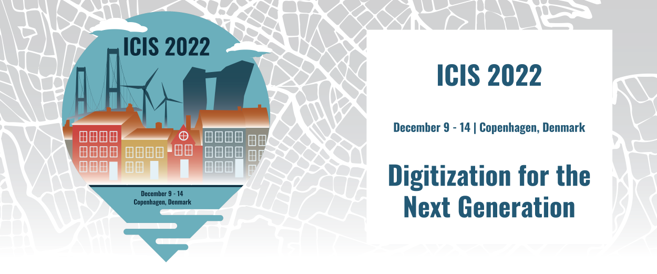Loading...
Paper Number
2036
Paper Type
Complete
Description
Digitalization has impacted how new practices emerge. In this study, we examined the genesis of new practices during the implementation of an ICT platform-enabled ecosystem in communities of subsistence farmers who were opening to modern development. The platform ecosystem, led by the eKutir social enterprise (Odisha, India), leveraged micro-entrepreneurs to establish networks of actors to support farmers. We view the eKutir model as an interstitial space, i.e., a transition space (combining physical, digital, and human components) that brings actors from different institutional fields together. Five focus groups (n=83 farmers) and semi-structured interviews (n=18 individuals) were conducted. Transcripts were analyzed using inductive methods. The study reveals a six-step institutional process: (i) forming physical and digital connections, (ii) gaining legitimacy, (iii) establishing inter-field resource dependencies, (iv) distributing power, (v) standardizing practices, and (vi) sustaining changes in practices. This study contributes to research on ICT for development and interstitial spaces.
Recommended Citation
McRae, Cameron; Annosi, Maria; and Dubé, Laurette, "Tracing Digital Transformation Pathways from Subsistence Farming to Equitable and Sustainable Modern Society: Revisiting the eKutir ICT Platform-Enabled Ecosystem as an Interstitial Space" (2022). ICIS 2022 Proceedings. 8.
https://aisel.aisnet.org/icis2022/soc_impact_is/soc_impact_is/8
Tracing Digital Transformation Pathways from Subsistence Farming to Equitable and Sustainable Modern Society: Revisiting the eKutir ICT Platform-Enabled Ecosystem as an Interstitial Space
Digitalization has impacted how new practices emerge. In this study, we examined the genesis of new practices during the implementation of an ICT platform-enabled ecosystem in communities of subsistence farmers who were opening to modern development. The platform ecosystem, led by the eKutir social enterprise (Odisha, India), leveraged micro-entrepreneurs to establish networks of actors to support farmers. We view the eKutir model as an interstitial space, i.e., a transition space (combining physical, digital, and human components) that brings actors from different institutional fields together. Five focus groups (n=83 farmers) and semi-structured interviews (n=18 individuals) were conducted. Transcripts were analyzed using inductive methods. The study reveals a six-step institutional process: (i) forming physical and digital connections, (ii) gaining legitimacy, (iii) establishing inter-field resource dependencies, (iv) distributing power, (v) standardizing practices, and (vi) sustaining changes in practices. This study contributes to research on ICT for development and interstitial spaces.
When commenting on articles, please be friendly, welcoming, respectful and abide by the AIS eLibrary Discussion Thread Code of Conduct posted here.



Comments
05-SocImpact